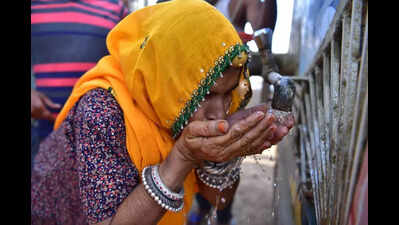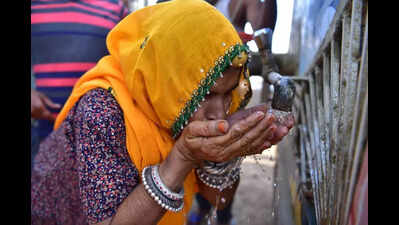- News
- City News
- prayagraj News
- AU to find solutions to Churu, Ladakh water scarcity
Trending
AU to find solutions to Churu, Ladakh water scarcity
Prayagraj: The problem of water scarcity in Churu (Rajasthan) and Ladakh in the Union Territory of Leh and Ladakh- will be solved by a team of experts from Allahabad University.
Indian Council of Social Science Research (ICSSR) under the Jal Jeevan Mission have assigned the project, worth Rs 10 lakh, to Prof Pawan Kumar Sharma of department of Geography at AU to solve the problem of water scarcity in the two arid regions of the country.
Sharma and his team will study the availability ofunderground water reserves and the viability of the useful traditional techniques of water management that were popular in the extreme weather regions and were used by their forefathers.
"The research in Churu district and cold Ladakh region aims to provide actionable insights and practical recommendations for ensuring a long-term potable water supply in these hydrologically stressed areas," said Sharma.
He added that Ladakh faces unique challenges such as the seasonal variability of water supply and the impacts of global warming on glacier melt patterns. The rapid increase in tourism and population growth in recent years has intensified the pressure on its fragile water resources. Ladakh's water management issues are further complicated by its remote location and the logistical challenges of maintaining water infrastructure in a high-altitude environment.
Through the project, necessary data will be made available to the policymakers, which will help in developing accurate and practical solutions for improving water management.
End of Article
FOLLOW US ON SOCIAL MEDIA











